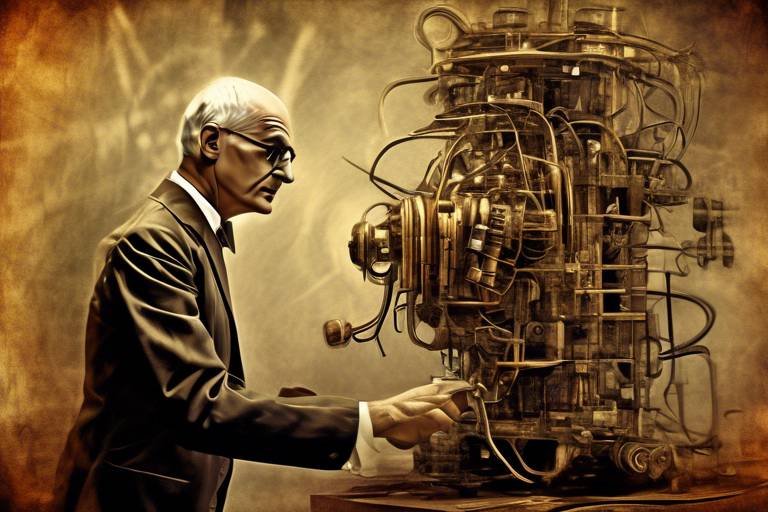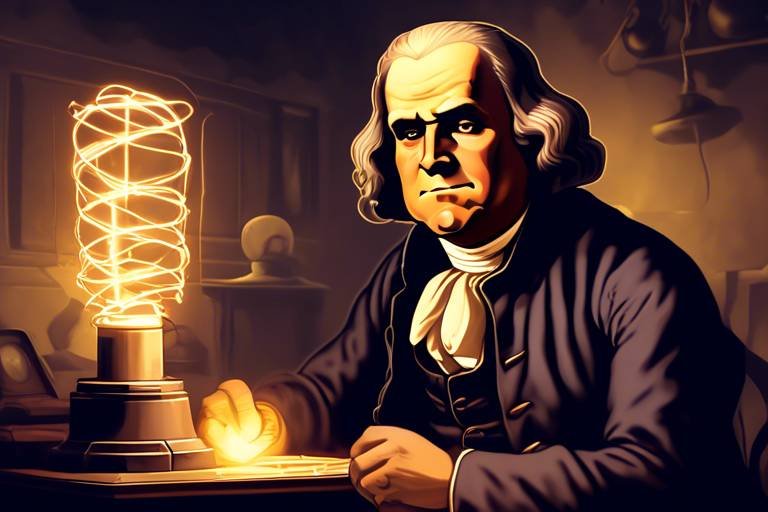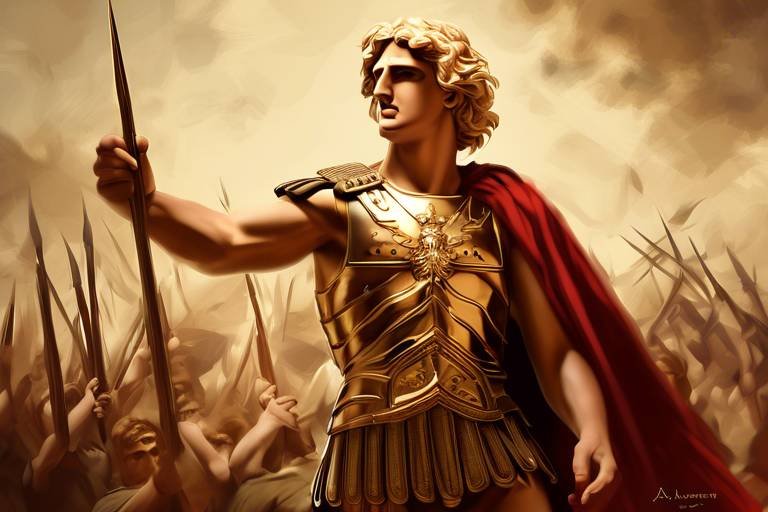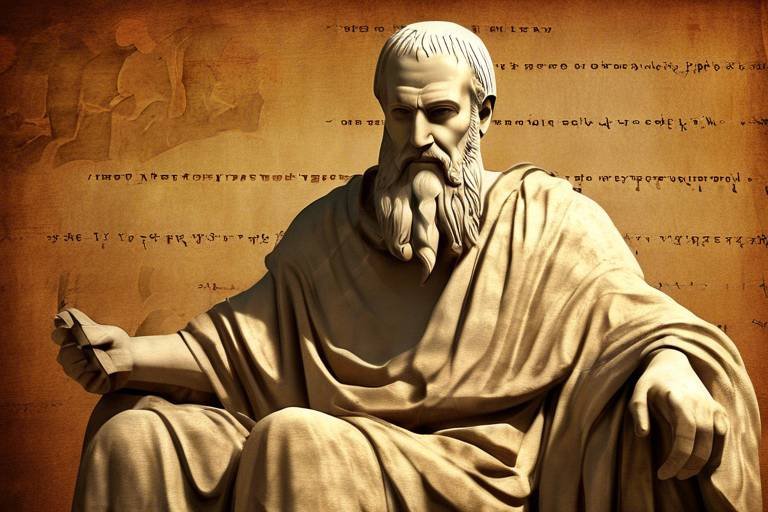Albert Einstein: The Genius of Relativity
Albert Einstein, a name synonymous with genius and innovation, forever changed the landscape of modern physics with his groundbreaking contributions to the theory of relativity. His work not only revolutionized our understanding of the universe but also paved the way for countless scientific advancements that continue to shape our world today.
From his humble beginnings in Germany to his later years in the United States, Einstein's journey was marked by a relentless pursuit of knowledge and a passion for unraveling the mysteries of the cosmos. His insatiable curiosity and unconventional thinking set him apart as a true visionary in the world of science.
One of Einstein's most famous achievements is his Special Theory of Relativity, which introduced the world to the concept of space-time and the relationship between energy and mass through the iconic equation Emc2. This theory challenged traditional notions of physics and laid the foundation for a new era of scientific exploration.
Delving deeper into the fabric of the universe, Einstein's General Theory of Relativity proposed that gravity is not a force but rather the curvature of space-time caused by the presence of mass and energy. This revolutionary idea transformed our understanding of the cosmos and opened up a realm of possibilities for future discoveries.
One of the most recent confirmations of Einstein's theories came with the detection of gravitational waves, ripples in the fabric of space-time that were predicted by his equations over a century ago. This groundbreaking discovery not only validated Einstein's work but also opened up a new window into the study of black holes, neutron stars, and other cosmic phenomena.
Einstein's legacy extends far beyond the realm of physics, influencing fields as diverse as technology, philosophy, and even popular culture. His name has become synonymous with intelligence and innovation, serving as an inspiration for generations of scientists and thinkers to push the boundaries of human knowledge.
As we look back on the life and work of Albert Einstein, we are reminded of the power of imagination, the importance of questioning the status quo, and the endless possibilities that lie within the realm of scientific discovery. Einstein's genius continues to shine brightly as a guiding light for all who dare to dream and explore the wonders of the universe.
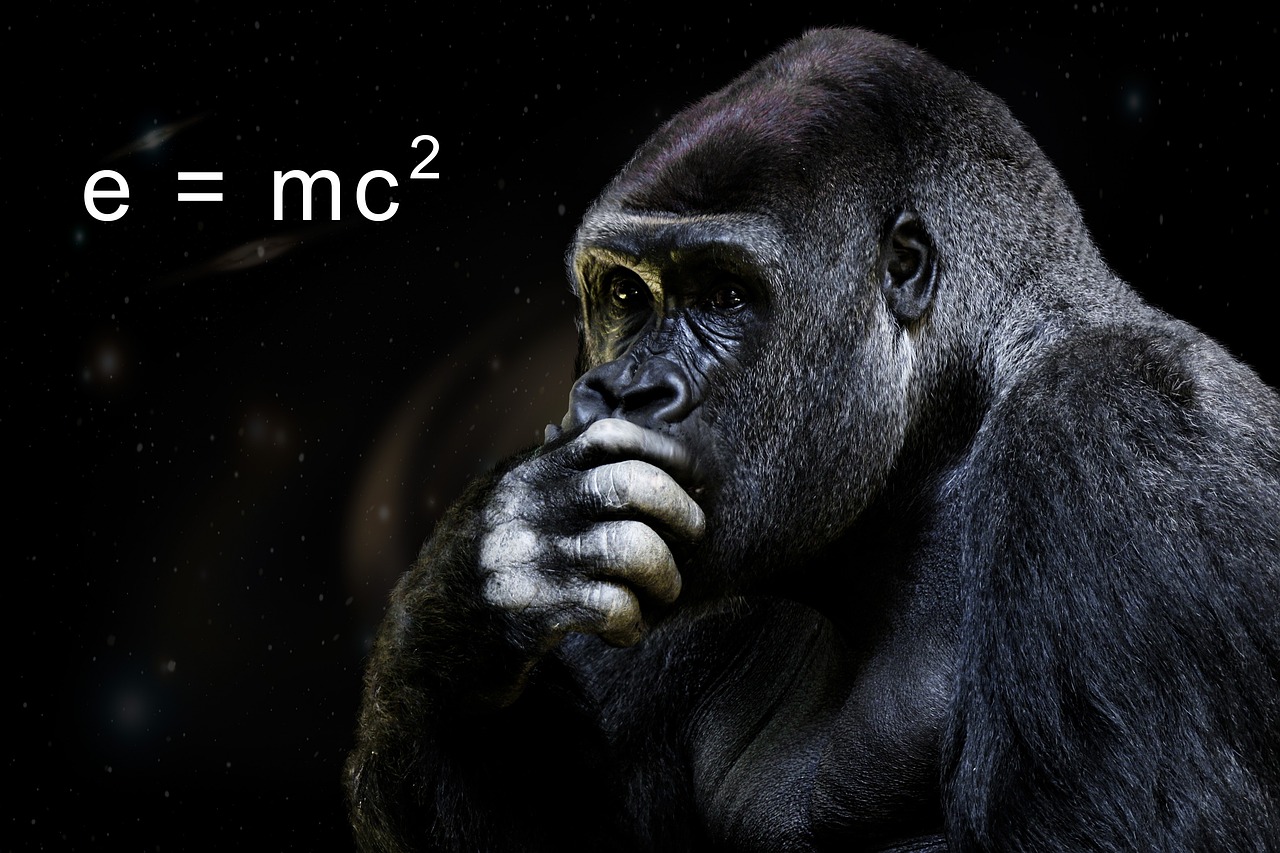
Early Life and Education
Exploring the life and work of Albert Einstein, focusing on his groundbreaking contributions to the theory of relativity and their profound impact on modern physics and our understanding of the universe.
Albert Einstein was born on March 14, 1879, in Ulm, Germany. His early years were marked by curiosity and a deep interest in science. Despite facing challenges with traditional education methods, Einstein excelled in mathematics and physics. He later attended the Polytechnic Institute in Zurich, where he studied physics and mathematics. After graduation, Einstein struggled to find academic positions, working as a patent examiner to make ends meet.
During this time, Einstein continued to develop his ideas and theories, laying the groundwork for his future groundbreaking work in physics. His unconventional thinking and unique approach to scientific problems set him apart from his peers, eventually leading to his revolutionary discoveries in the field of theoretical physics.
Einstein's early education and experiences shaped his perspective on the world and fueled his passion for unraveling the mysteries of the universe. His relentless pursuit of knowledge and his willingness to challenge established beliefs were evident even in his formative years, setting the stage for his extraordinary contributions to science.
Delving into the key concepts and implications of Einstein's special theory of relativity, including the famous equation Emc^2 and the concept of time dilation.
Explaining the fundamental idea of the space-time continuum in Einstein's theory of relativity and how it revolutionized our understanding of the fabric of the universe.
Examining Einstein's general theory of relativity, which introduced the concept of gravity as the curvature of space-time and its profound implications for cosmology.
Discussing the recent discovery of gravitational waves, predicted by Einstein's general theory of relativity a century ago, and their significance in astrophysics and cosmology.
Reflecting on the lasting impact of Einstein's work on modern science, technology, and philosophy, and his enduring legacy as one of the greatest scientific minds in history.

Special Theory of Relativity
Exploring the life and work of Albert Einstein, focusing on his groundbreaking contributions to the theory of relativity and their profound impact on modern physics and our understanding of the universe.
Detailing Einstein's upbringing, education, and early career experiences that laid the foundation for his revolutionary ideas in physics.
The special theory of relativity, formulated by Albert Einstein in 1905, revolutionized our understanding of space and time. At its core, this theory proposes that the laws of physics are the same for all non-accelerating observers, leading to the famous equation Emc2. This equation, where energy (E) is equal to mass (m) multiplied by the speed of light squared (c2), demonstrates the equivalence of mass and energy.
Moreover, one of the most intriguing implications of the special theory of relativity is the concept of time dilation. Einstein showed that time is not absolute but is relative and can be experienced differently depending on the observer's motion. This concept challenges our intuitive understanding of time and has profound implications for space travel and our perception of the universe.
In Einstein's special theory of relativity, the concept of the space-time continuum emerged as a fundamental idea. This concept combines the three dimensions of space with the fourth dimension of time into a single four-dimensional continuum. The space-time continuum revolutionized our understanding of the fabric of the universe, portraying space and time as interconnected entities that can be warped by gravity.
Examining Einstein's general theory of relativity, which he published in 1915, further expanded our understanding of gravity. In this theory, Einstein proposed that gravity is not a force but rather the curvature of space-time caused by massive objects. This revolutionary concept redefined our perception of gravity, portraying it as the bending of the fabric of space-time by massive objects such as stars and planets.
The recent detection of gravitational waves in 2015, a century after Einstein predicted their existence, provided direct evidence of the curvature of space-time as described in the general theory of relativity. These ripples in space-time, caused by cataclysmic events such as the collision of black holes, have opened a new era in astrophysics and cosmology, allowing scientists to observe the universe in a completely different way.
Reflecting on the lasting impact of Einstein's work, it is evident that his theories have not only shaped modern physics but also influenced technology and philosophy. Einstein's legacy as one of the greatest scientific minds in history continues to inspire generations of scientists and thinkers to push the boundaries of knowledge and explore the mysteries of the universe.

Space-Time Continuum
The is a concept that lies at the heart of Albert Einstein's theory of relativity, reshaping our understanding of the universe in a profound way. Imagine space and time intertwined like a fabric, forming a unified entity where the three dimensions of space and the one dimension of time are interconnected. This revolutionary idea suggests that space and time are not separate entities but rather components of a single continuum, known as the space-time fabric.
In Einstein's theory, the presence of mass and energy causes this fabric of space-time to curve, affecting the path that objects follow through space. This curvature of space-time is what we experience as gravity, as massive objects like planets and stars create a "dimple" in the fabric, causing other objects to move along curved trajectories. This concept fundamentally changed our understanding of gravity, viewing it not as a force acting at a distance but as the bending of the very structure of the universe itself.
One of the key implications of the space-time continuum is the concept of time dilation, where time can appear to move at different rates depending on the speed of an object and the strength of the gravitational field it is in. This means that time is not a constant, but rather a flexible dimension that can be influenced by the presence of mass and energy. The closer an object is to a massive body, the slower time flows relative to a distant observer, a phenomenon known as gravitational time dilation.

General Theory of Relativity
Exploring the life and work of Albert Einstein, focusing on his groundbreaking contributions to the theory of relativity and their profound impact on modern physics and our understanding of the universe.
Detailing Einstein's upbringing, education, and early career experiences that laid the foundation for his revolutionary ideas in physics.
Delving into the key concepts and implications of Einstein's special theory of relativity, including the famous equation Emc^2 and the concept of time dilation.
Explaining the fundamental idea of the space-time continuum in Einstein's theory of relativity and how it revolutionized our understanding of the fabric of the universe.
Albert Einstein's general theory of relativity is a monumental achievement in the realm of physics. This theory introduced the revolutionary concept that gravity is not just a force acting at a distance, but rather the result of the curvature of space-time caused by massive objects. Imagine space-time as a trampoline, and massive objects like stars and planets as heavy balls placed on it, causing a curvature that dictates the motion of other objects around them.
Einstein's general theory of relativity not only provided a new understanding of gravity but also paved the way for modern cosmology. By proposing that space and time are interconnected and influenced by matter and energy, Einstein fundamentally altered our perception of the universe.
Discussing the recent discovery of gravitational waves, predicted by Einstein's general theory of relativity a century ago, and their significance in astrophysics and cosmology.
Reflecting on the lasting impact of Einstein's work on modern science, technology, and philosophy, and his enduring legacy as one of the greatest scientific minds in history.

Gravitational Waves
Gravitational waves are ripples in the fabric of space-time that propagate through the universe at the speed of light, carrying information about the most violent and energetic processes in the cosmos. These waves were first predicted by Albert Einstein in his general theory of relativity over a century ago, but it wasn't until 2015 that scientists were able to directly detect them for the first time.
These waves are produced by massive objects undergoing acceleration, such as colliding black holes or neutron stars. When these cataclysmic events occur, they send out ripples in space-time that can be detected by extremely sensitive instruments here on Earth. The detection of gravitational waves has opened up a new window into the universe, allowing scientists to observe phenomena that were previously invisible.
One of the most significant aspects of gravitational waves is that they provide a direct way to study the dynamics of celestial objects and verify the predictions of Einstein's theory of general relativity. By analyzing the characteristics of the waves, scientists can learn more about the nature of gravity, the properties of black holes, and the evolution of the universe itself.

Einstein's Legacy
Albert Einstein's legacy is a profound testament to the enduring impact of his revolutionary ideas on modern science, technology, and philosophy. His groundbreaking contributions to the theory of relativity have reshaped our understanding of the universe and continue to influence scientific research and exploration to this day.
One of the key aspects of Einstein's legacy is his ability to challenge conventional wisdom and push the boundaries of human knowledge. By questioning established beliefs and exploring new frontiers of physics, he paved the way for future generations of scientists to think outside the box and pursue innovative avenues of research.
Furthermore, Einstein's legacy extends beyond the realm of theoretical physics to encompass a broader cultural and philosophical influence. His emphasis on the interconnectedness of all things and the unity of the cosmos has inspired a sense of wonder and curiosity in people around the world, fostering a deeper appreciation for the mysteries of the universe.
In addition to his scientific achievements, Einstein's legacy also serves as a reminder of the power of perseverance and dedication in the face of adversity. Despite facing numerous challenges and setbacks throughout his career, he remained steadfast in his pursuit of knowledge and never wavered in his commitment to unraveling the secrets of the universe.
Overall, Einstein's legacy stands as a testament to the enduring power of human curiosity, imagination, and ingenuity. His work continues to inspire and motivate scientists, thinkers, and dreamers alike, reminding us of the boundless possibilities that exist when we dare to explore the unknown and embrace the mysteries of the cosmos.
Frequently Asked Questions
- What is the theory of relativity?
The theory of relativity, developed by Albert Einstein, is a cornerstone of modern physics that describes the relationship between space and time. It posits that the laws of physics are the same for all non-accelerating observers and that the speed of light in a vacuum is constant for all observers.
- What is the difference between special and general relativity?
Special relativity, proposed by Einstein in 1905, deals with the behavior of objects in inertial frames of reference and introduces concepts like time dilation and length contraction. General relativity, formulated in 1915, extends these ideas to include gravity as the curvature of spacetime, explaining the motion of objects in gravitational fields.
- How did Einstein's work on relativity change our understanding of the universe?
Einstein's theories of relativity revolutionized our understanding of space, time, and gravity. They provided a new framework for describing the dynamics of the cosmos, leading to discoveries such as black holes, gravitational waves, and the expanding universe.
- What is the significance of Emc^2 in Einstein's theory of relativity?
The equation Emc^2, derived from special relativity, shows the equivalence of mass and energy. It demonstrates that mass can be converted into energy and vice versa, leading to advancements in nuclear physics, energy production, and our understanding of the fundamental nature of matter.
- How has Einstein's legacy influenced modern science and technology?
Einstein's groundbreaking work continues to shape scientific research and technological advancements in fields such as astrophysics, quantum mechanics, and cosmology. His theories have inspired new discoveries and innovations that have transformed our understanding of the universe and the fundamental laws of nature.


